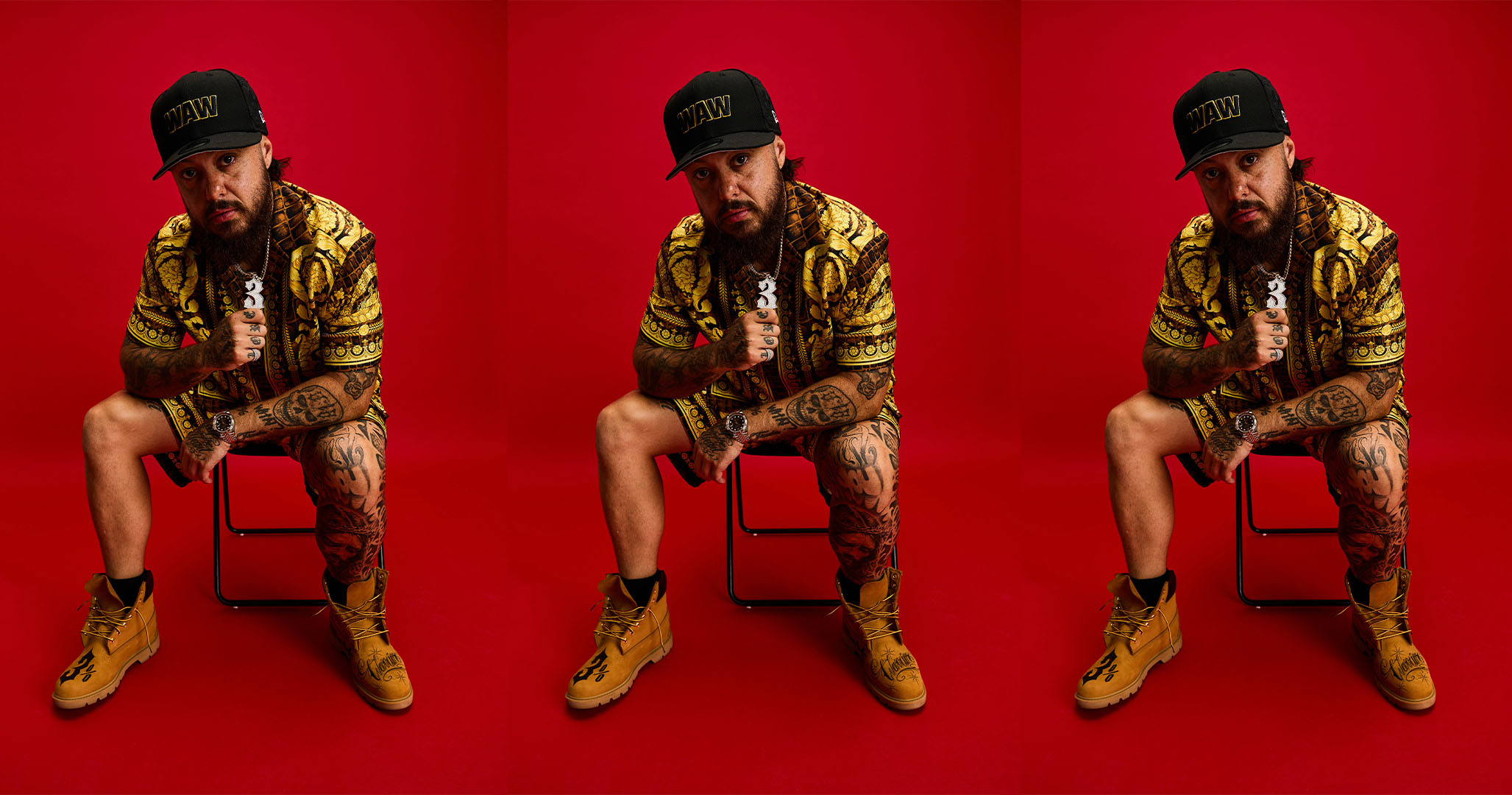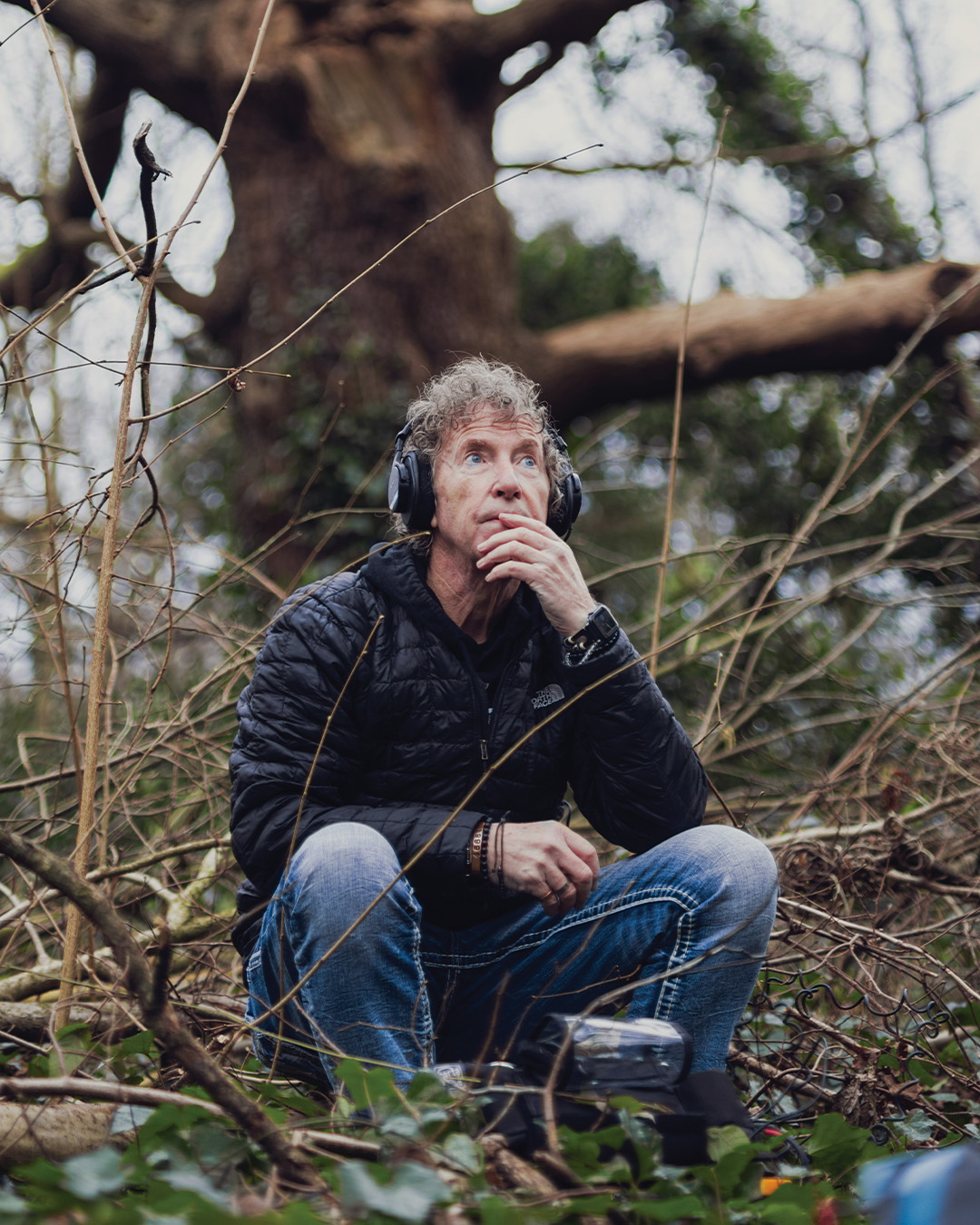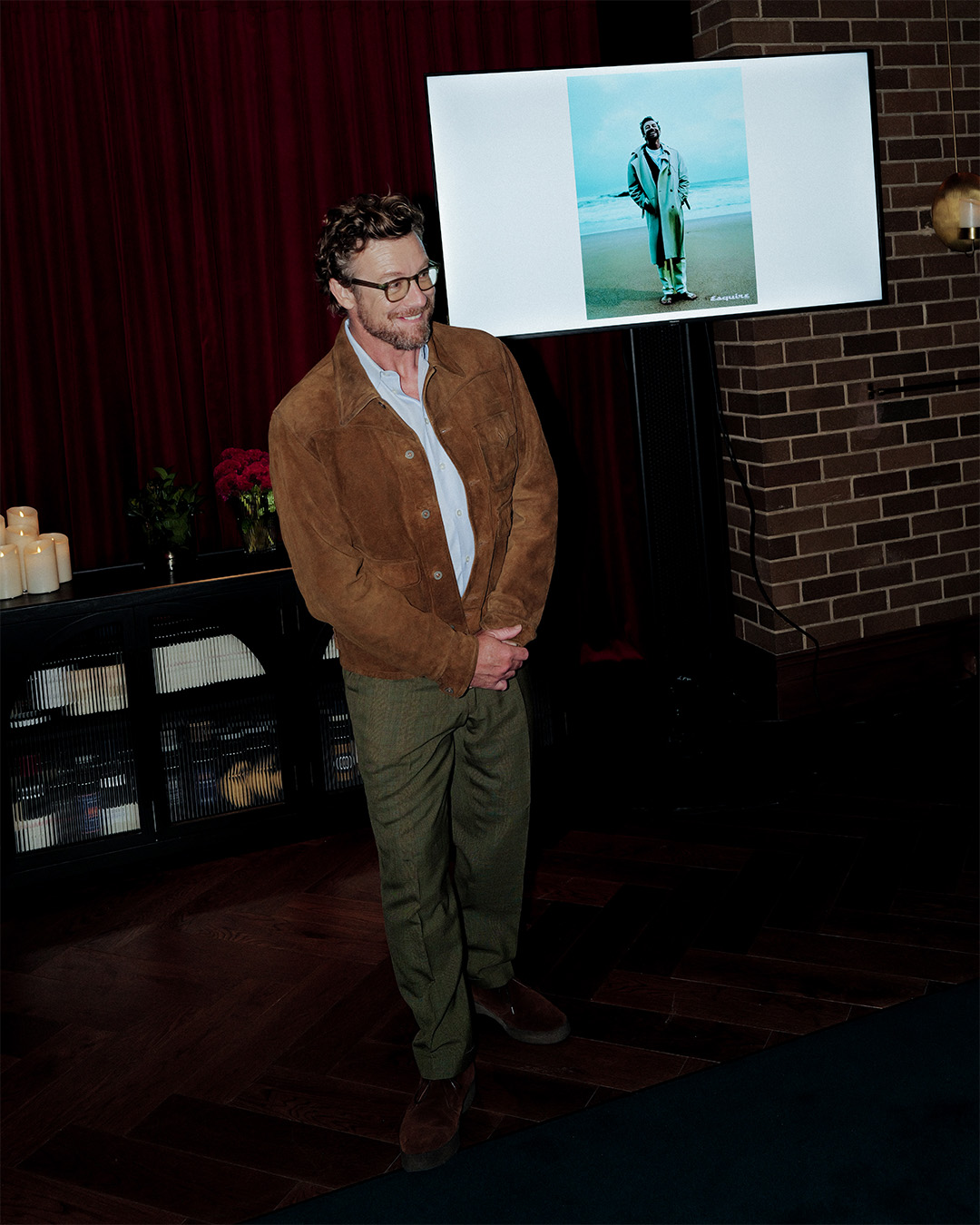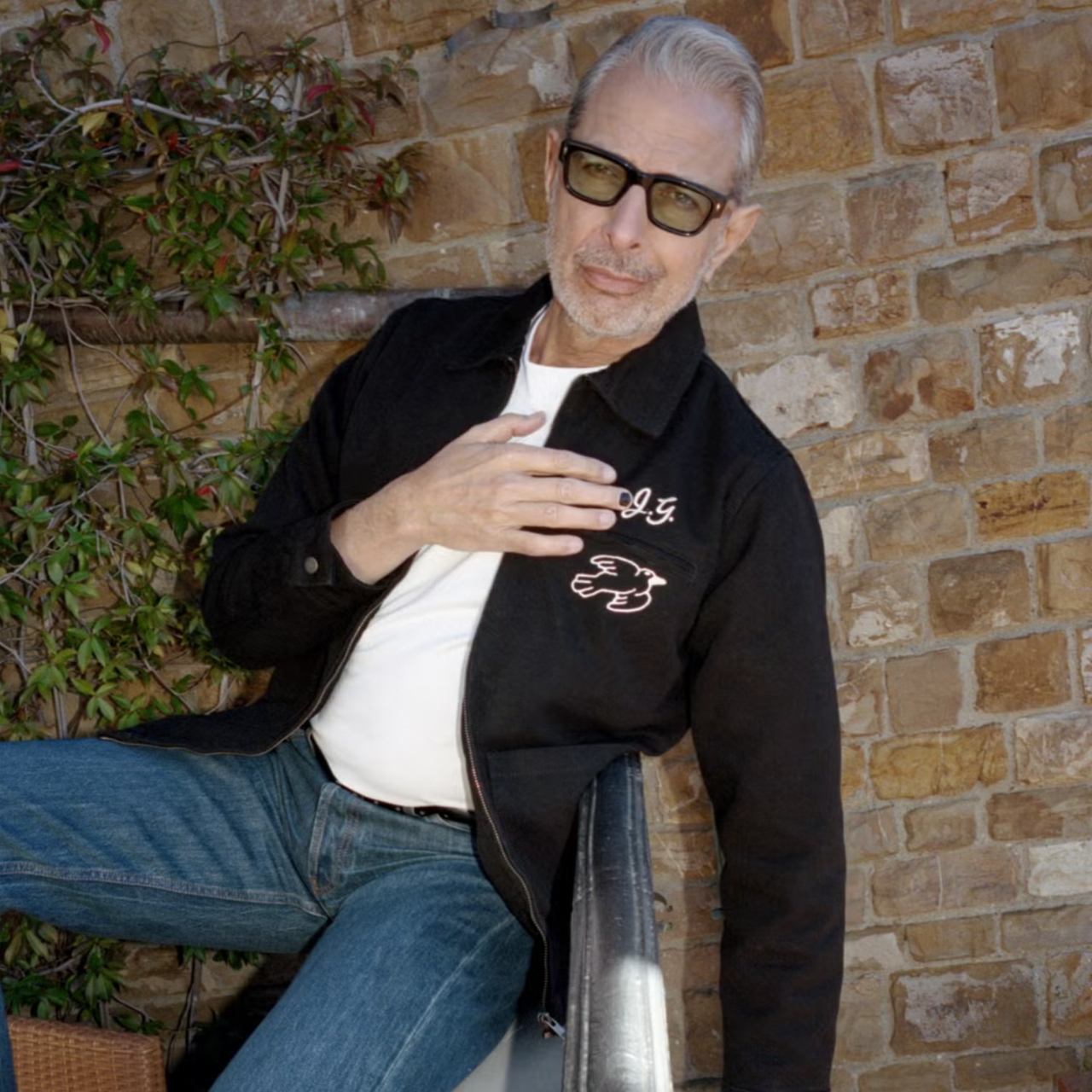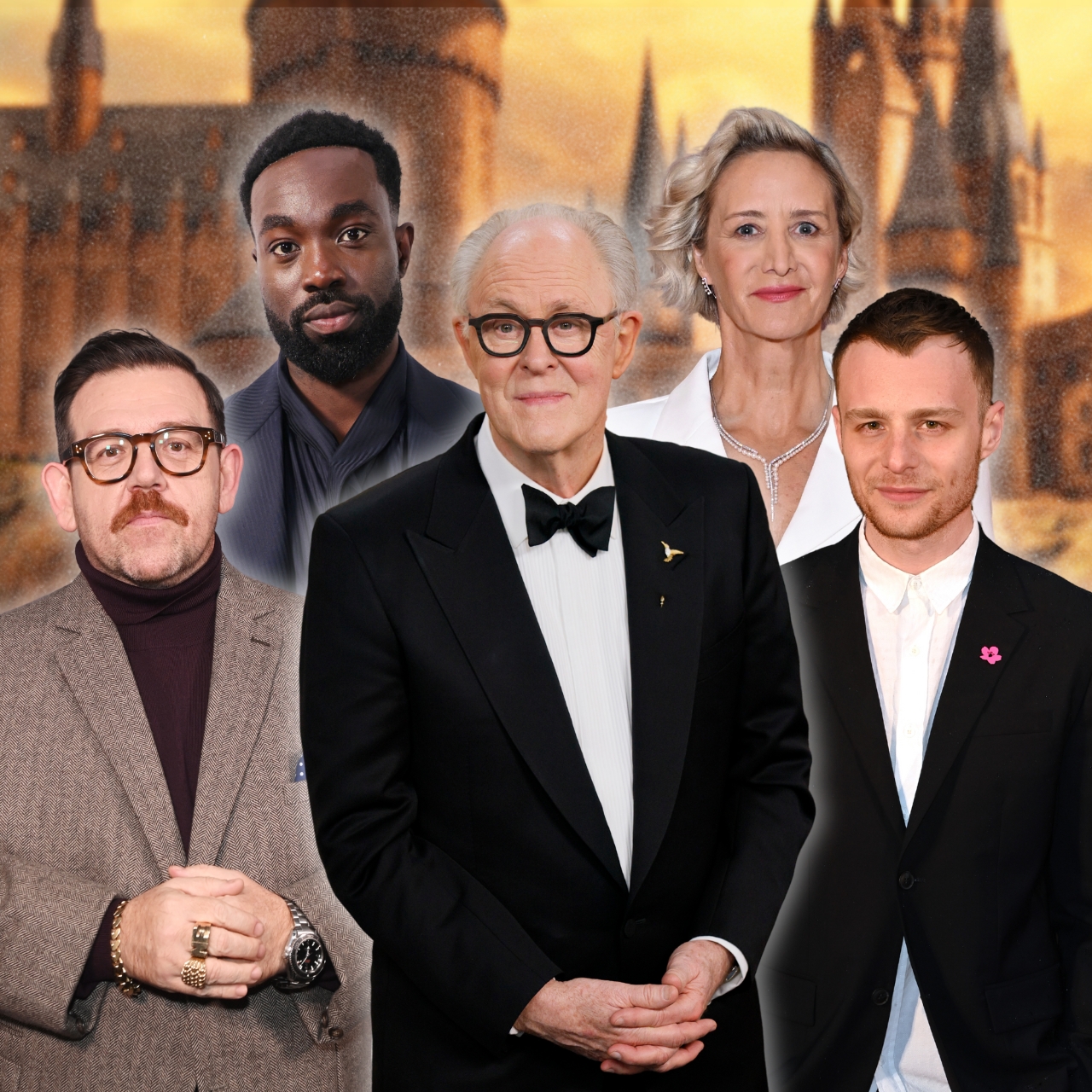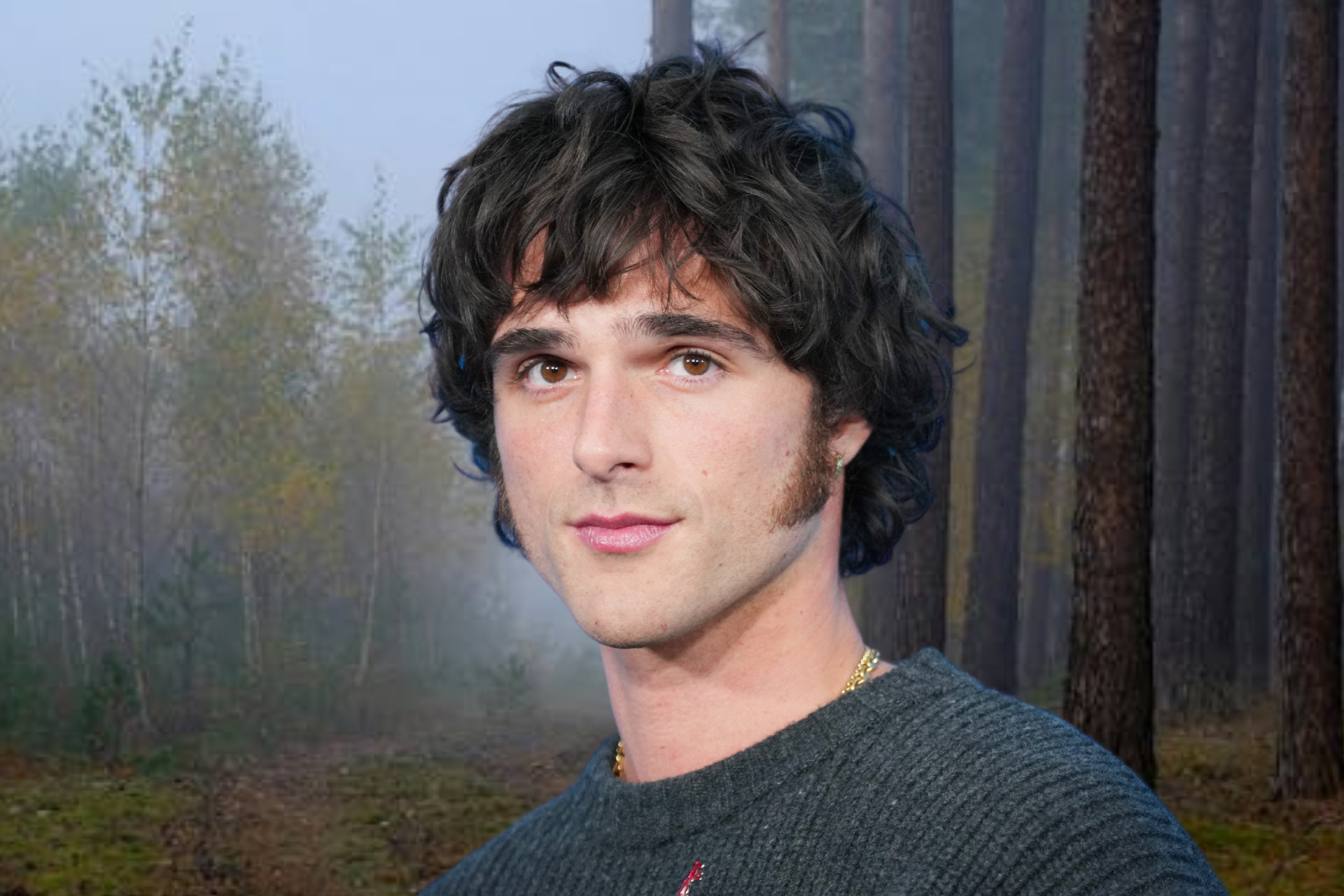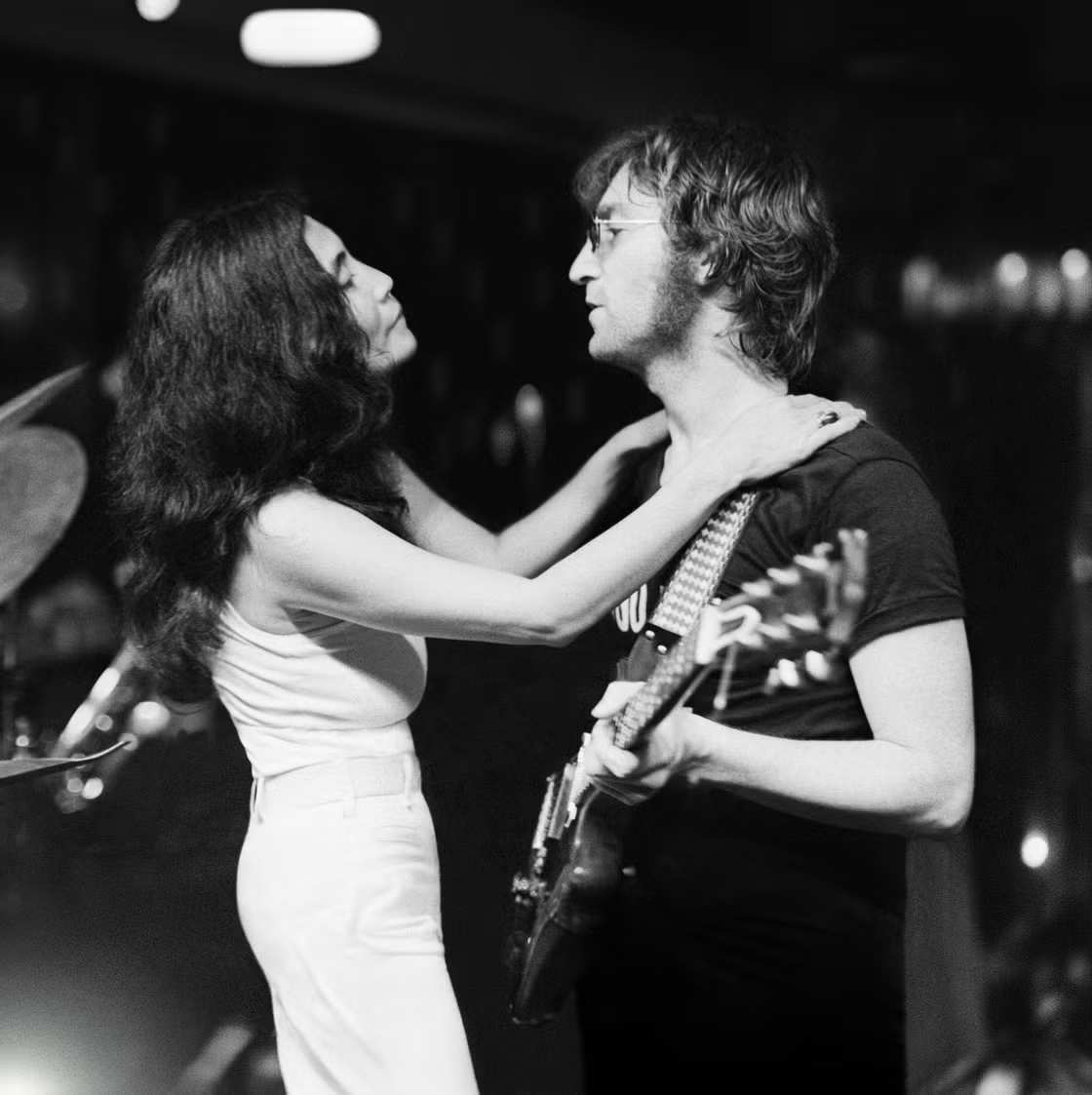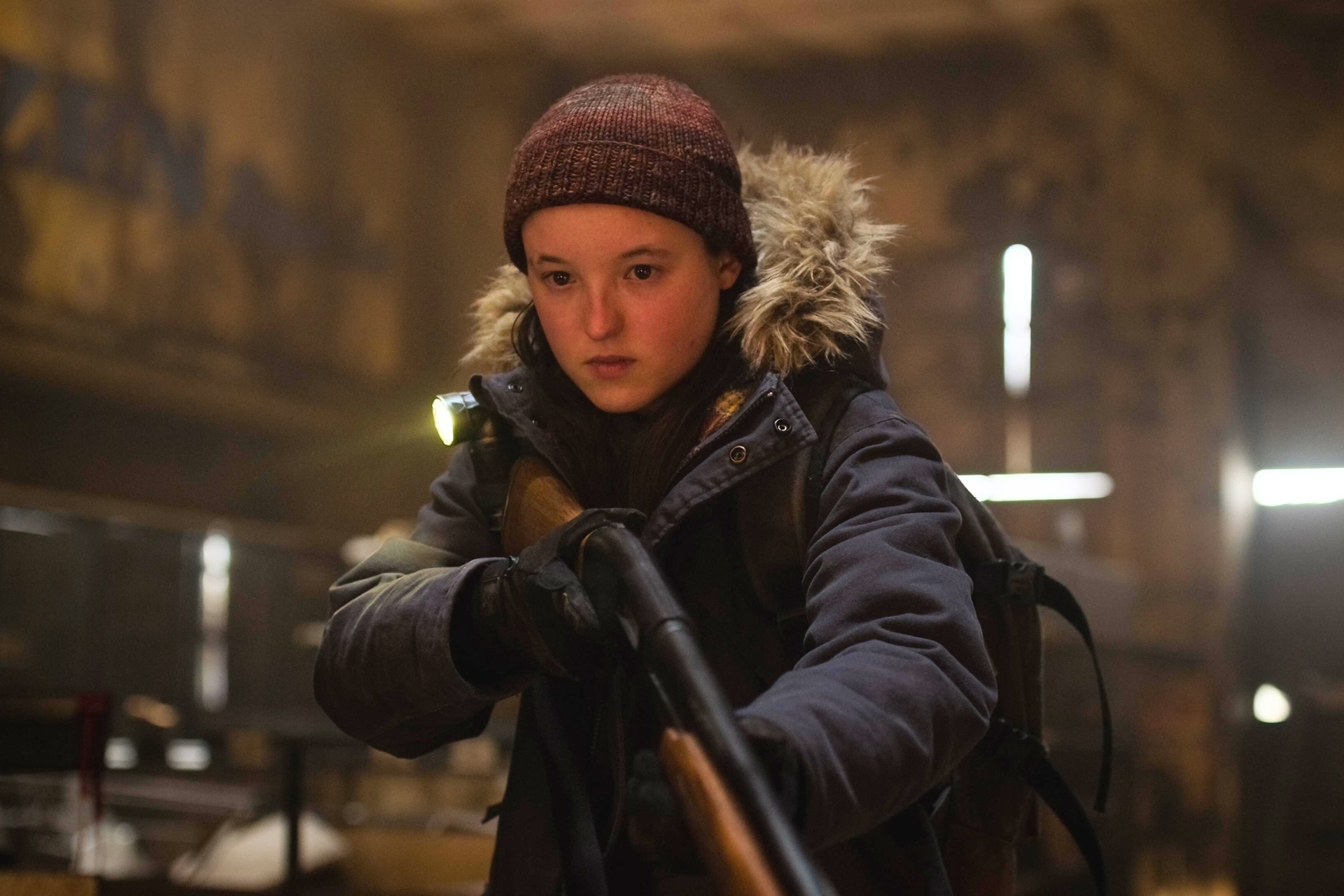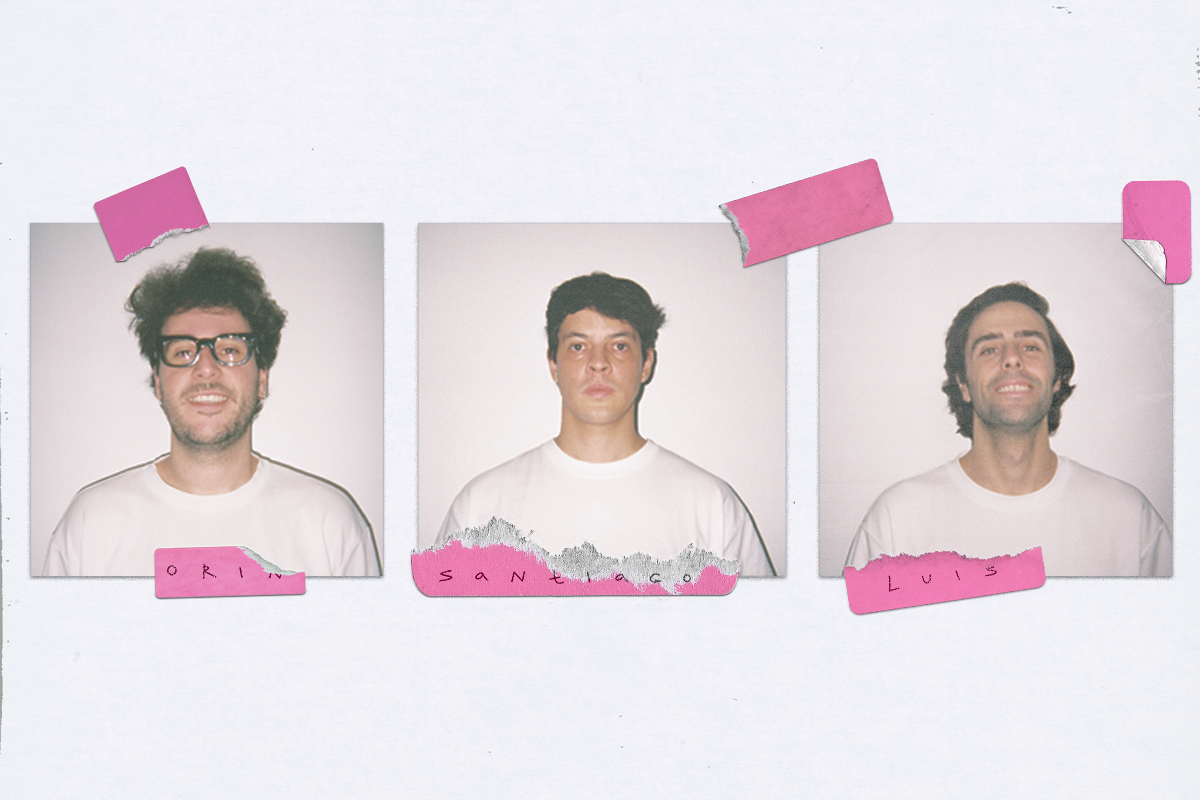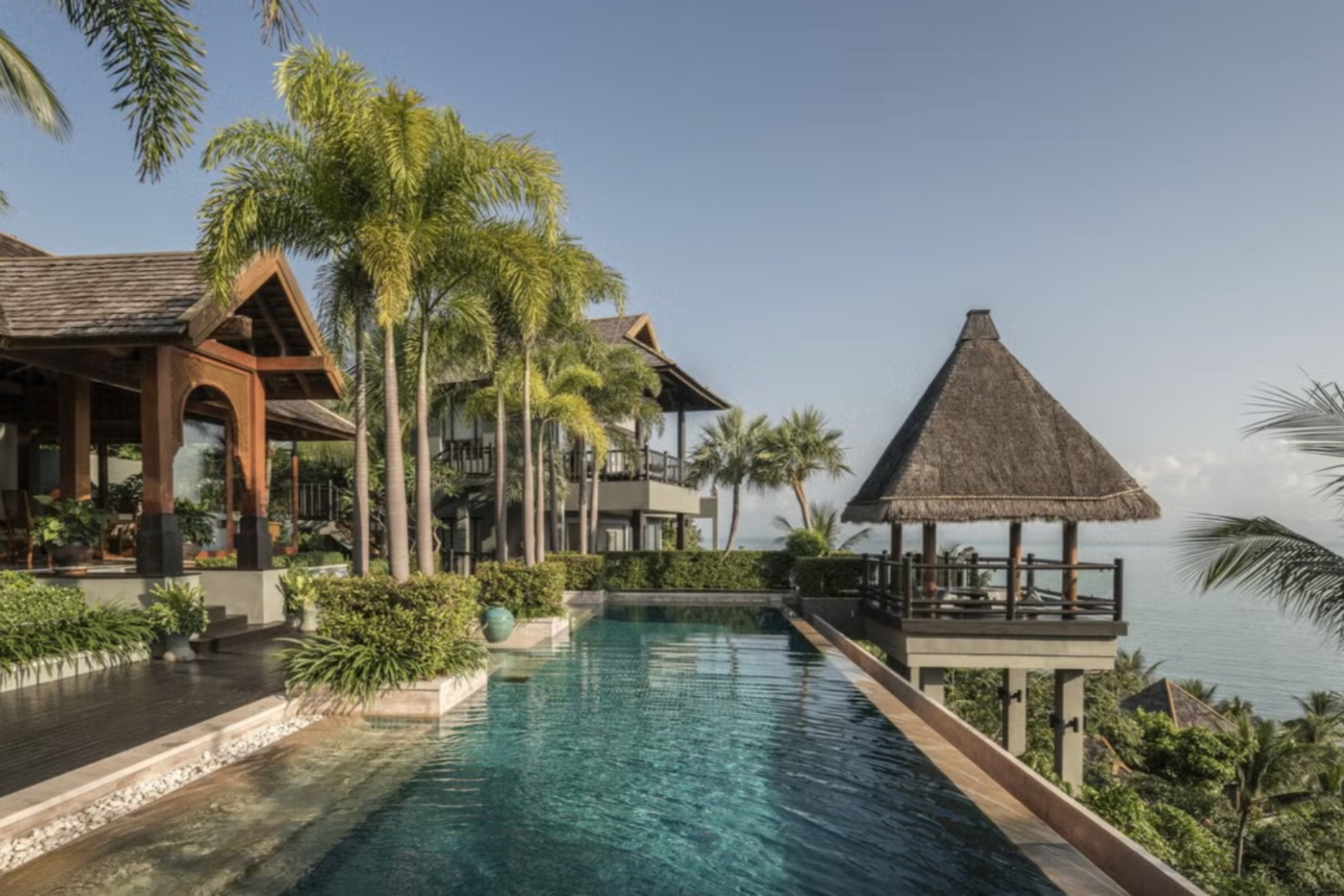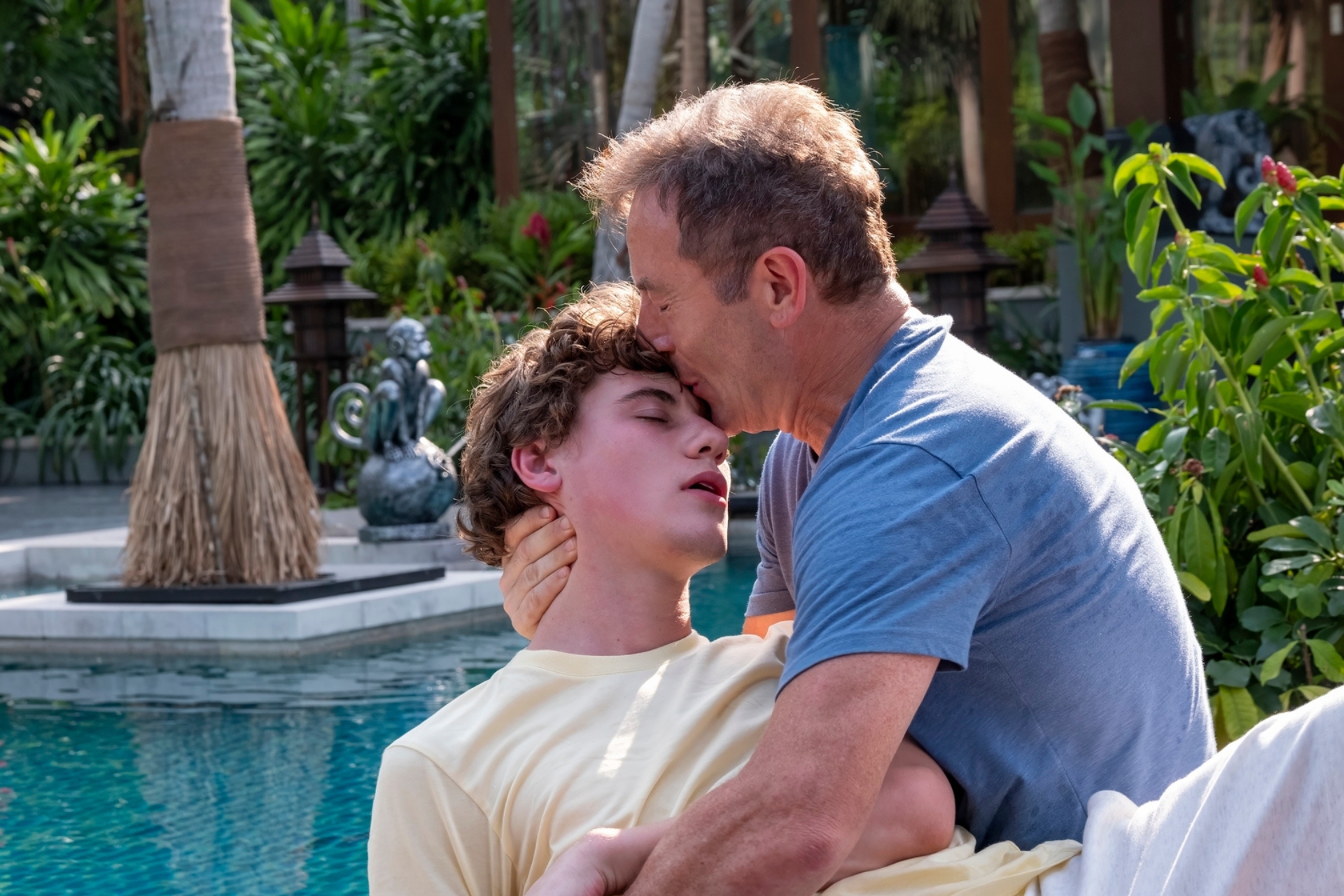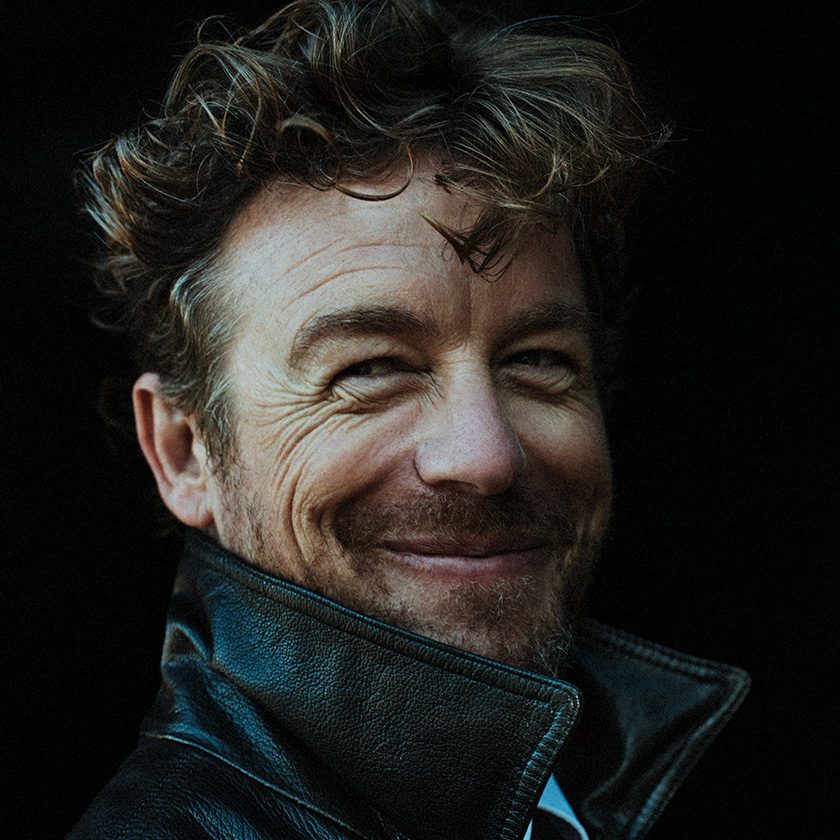NOWRA – A MAJOR TOWN on the South Coast of NSW – swirls in a haze of salt, heat and lost hope; a dusty main street looks like it’s been ransacked by the ghost of a colonial dream. At least, that’s how it felt to Nooky, as he came of age surrounded by the town’s orange-brick shopfronts and sprawling industrial estates. But nowadays, the proud Yuin and Thungutti man is dedicated to breathing new life into his old hood. He does this through working with young people in the community, as well as his job as a radio host and presenter. But first and foremost, he does this through rap.
“Rap songs are kind of like timestamps,” says Nooky. “You can go back and listen to songs and think, I know when that happened, I remember that. It’s like when our people put their handprints on the wall. It’s like, This is going to be there forever. I think of music the same. It’s a tale of the times.”

AS A KID, it took Nooky, who was born Corey Webster, time to find solace in the rhythmic escape offered by his interest in hip hop. School, with its rigid structures and prejudices, proved to be a crucible where he was forced to confront the harsh realities of discrimination. He was repeatedly told he was “not worth it”, a sentiment echoed by teachers and naysayers alike. “There was a lot of racism back at school, a lot of racism around the town,” he says. The very act of writing down his thoughts – scribbling verses in the margins of notebooks, recording impassioned freestyles on a battered CD player – became a lifeline, a way to transmute pain into poetry.
“They said I was wasting my time, I was wasting their time, and that I’d end up behind bars just like my uncles. But that only made me work harder.”
In an act of rebellion, Nooky submitted a mixtape as his final school project – a diss project that interwove personal experience with lyrical snipes at the teachers at his high school. “They told me to sign myself out, or I’d be kicked out,” he recalls, his voice low and measured.
While all of this was unfolding at school, Nooky was travelling up to Sydney to spend time with his older cousin, the hip-hop musician Selway. A consummate artist with an uncanny ability to mash the violence of urban struggle with raw emotion, Selway introduced his younger cousin to a world beyond Nowra. “I used to follow him around like a little shadow,” Nooky recalls. “He showed me some of his music, and it blew me away. It was about his life and his experiences. Blakfella stories.”
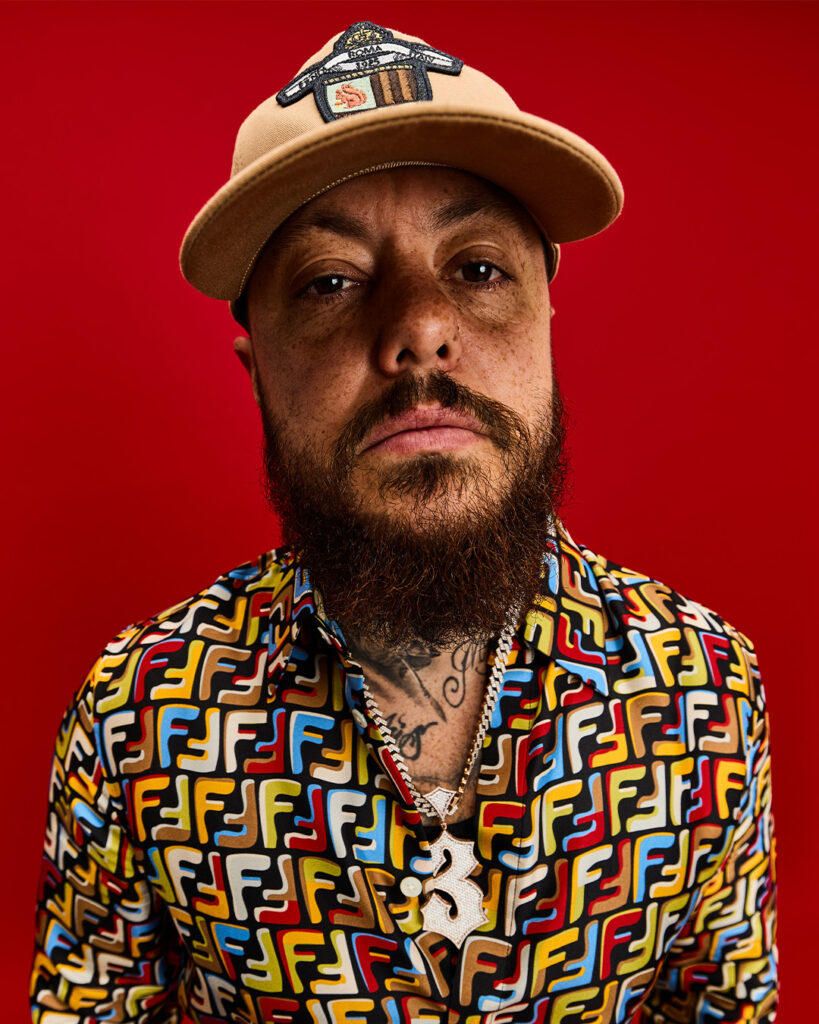
A serendipitous encounter at a community centre provided Nooky with his first taste of studio recording. “I ended up just recording. I done a little verse. And I noticed that after I done the verse, it was like, all the emotions left,” he recalls. The microphone became an instrument of freedom. “It took all the anger and pain off me.” Meanwhile, thumbing through CDs at his local Sanity store, Nooky was unearthing work by artists who built careers baring their souls (and sins) in verse, from 50 Cent to Eminem.
Then, at the age of 19, he was noticed by Taboo of the Black Eyed Peas during the American rapper’s visit to an Indigenous music initiative in Redfern. Having impressed Taboo with his talent and heart, Nooky was invited to the US to collaborate with the Black Eyed Peas in 2010, at the peak of the group’s standing (they had released bangers ‘Boom Boom Pow’ and ‘I Gotta Feeling’ the year before). While in the States, he took up an internship at Harvard University, where he worked on the play Finding Neverland in its pre-production and off-Broadway phases. “I thought I made it; I went into the studio and recorded my verse, but the album got shelved and never came out,” he recalls of working with the Peas.
It was only ever FOOTBALL or crime that was shown to me, so I’m just trying to SHOW there’s another couple of PATHWAYS they can take.
Not long after returning to Australia, Nooky met an artist called Briggs, a proud Yorta Yorta man who would also come to have a formative impact on his career. “Briggs said, ‘That would have been a cool experience, but it’s about what you do now’,” Nooky recalls. “‘What’s next? What are you going to do? You’ve got to keep working; you can’t bank on that’. So, I just went harder on the shows, harder on writing music, and kept doing my thing. I kind of made a name just on the live shows. A few years later, Briggs signed me to [his record label] Bad Apples.”
The momentum was building again when Nooky, baring his soul in verse, was struck by the loss of a beloved cousin. The grief that followed was all-consuming. He fell into a depressive slump, yet even at his lowest point, he was determined not to meet the fate his schoolteachers had so cruelly predicted.
“When I was drinking, I felt like I disrespected the gift I was given. I let too much poison into what used to be medicine for me. Rapping used to be healing, and then it became poisonous.” So, he took a step back and focused on getting sober.
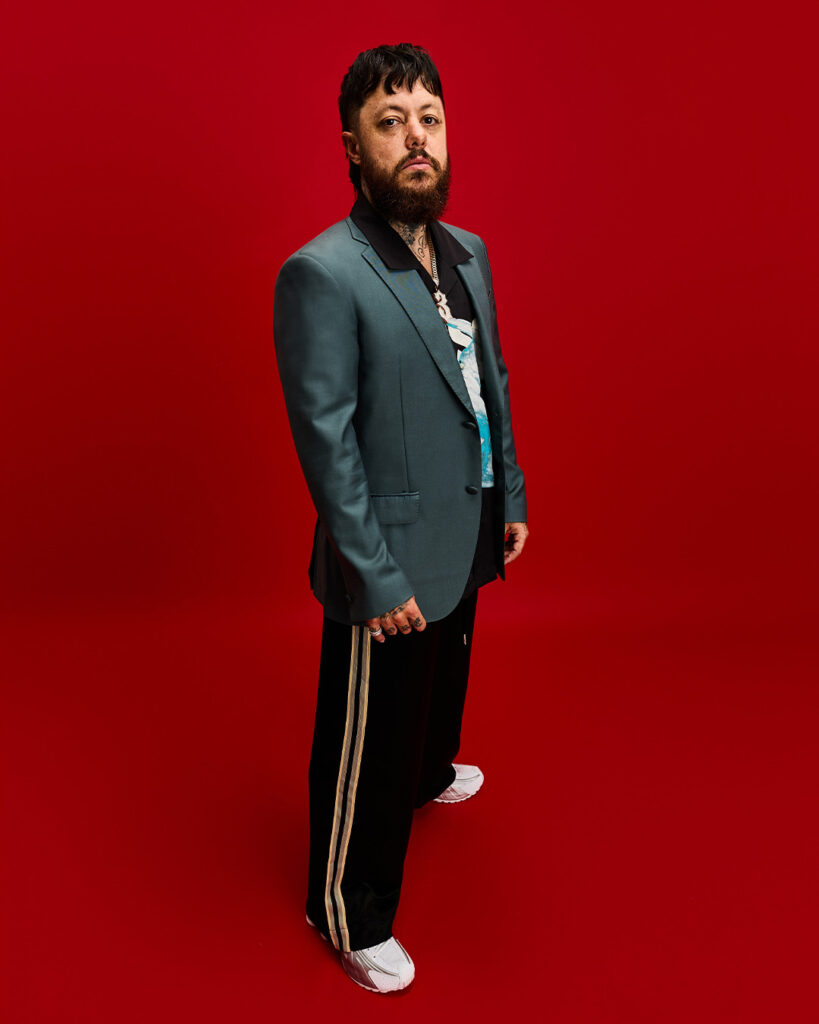

AMID THIS PERSONAL maelstrom, a return to ancient roots offered an unexpected refuge for Nooky, as he reconnected with the heritage of his ancestors. “My people have been around since forever, and I look at our old stories, what’s painted in those caves. I look at those as keys to life, keys to survival, keys to success. I would go sit with my dad and learn about our old stories. And my dad would take me to special places. And those special places, he would tell me what this one’s about, or what that one means.”
Among the ancient legends that resonated most deeply with him was the story of the Black Cockatoo – Nowra is named after the Yuin word for the native Australian bird. The story, his father explained, encapsulates the struggle and eventual transformation born of fire and pain: a white cockatoo, unprepared for the harsh trials of a burning bush, is scorched and remade by the flames. The bird, emerging with scars that serve as badges of survival, becomes a symbol of resilience – a Rain Bird, reborn and strengthened by the very forces that sought to destroy it. “That story became a blueprint for me,” Nooky confides. “It was a reminder that our scars are not marks of defeat, but lessons that make us stronger. After that, it was like I was 16 again, rapping with all the joy of my first days.”
This allegory, drawn from the deep well of his Aboriginal heritage, began to infuse his music with a new sense of purpose. Around this time, he met another prodigious First Nations musician and struck up a close friendship. Thirteen years his junior, The Kid LAROI looked up to Nooky, and in that moment, the Nowra rapper began to embrace his calling as a role model.
“I might have met him when he was 14, 15, something like that,” Nooky recalls of this issue’s cover star. “I was recording at the studio in Alexandria, and he was doing a little bit of work with [artist manager] Ricky [Simandjuntak] at the time. Ricky was like, ‘Oh, you gotta meet this kid’. So, he brings him into the studio one time, and he walks in and says, ‘Oh, Uncle Nooks’.”
From that moment, Nooky kept a close eye on Laroi. “I used to buy him and his little brother lunch. I’d see the boys, give ’em 20, [say] ‘Go boys, get a feed’. And then he used to hit me up to hang out, get around the music.” When Laroi started making a name for himself, Nooky gave him more than just advice.
“I had a show in Sydney, the NAIDOC Block Party, and by that point, he might’ve been just 16. He hit me up like, ‘Oh, can I come perform at this?’ And I’m like, ‘Yeah, fuck yeah!’” It would become The Kid LAROI’s first performance in a licensed venue.
Fast forward to late 2024 and Nooky found himself sharing the stage with Laroi again – but this time, in a Sydney stadium. “He hit me up and said, ‘You gonna come to the show tonight?’ I was like, ‘Oh, brother, I got my own show’. He goes, ‘Well, you have to come to the show’. And I’m like, ‘Yeah, all right then’.” On stage together, they performed the first song Laroi recorded, ‘Blessings’. “It was a mad, full-circle moment. Like, I shared the stage with this kid when he was 15, snuck him into a venue for his first proper show. And now I’m here in a fucking stadium with him.”
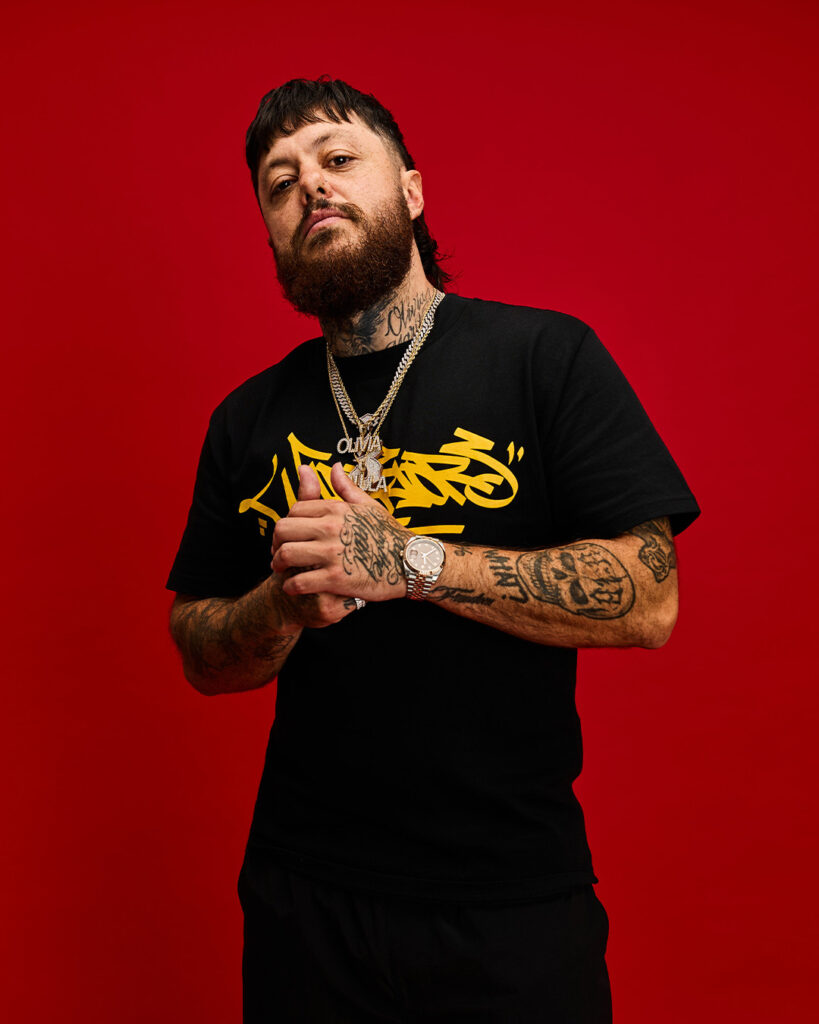

MENTORING A YOUNG Laroi not only exposed Nooky to the difference he could make in the lives of young artists, but how much he enjoyed setting up initiatives that gave First Nations kids pathways to success – pathways that weren’t available to his younger self. In 2021, he established the Indigenous social enterprise We Are Warriors, a platform dedicated to celebrating Blak excellence and empowering Indigenous youth.
“It’s about highlighting ‘fire’ people to the youth, linking them with people like Laroi, Patty Mills, Jessica Mauboy.” By bringing Indigenous leaders together under the banner of We Are Warriors, working with creative agencies and cultural institutions like the Powerhouse Museum to host events, workshops and, of course, gigs, Nooky and his founding ‘Warriors’ – a group that also includes rappers Barkaa and Kobie Dee, as well as First Nations model Charlee Fraser – are helping kids to see what they can be.
“We started to share stories of Blak excellence, being out there in the communities, giving the kids the tools to go out and achieve their dreams. It was only ever football or crime that was shown to me, [so] I’m just trying to show them there’s another couple of pathways they can take.
“Since we launched the program, attendance for the at-risk youth at the school has gone up 400 per cent . . . We Are Warriors is like a spear. It takes a few hands to put this thing together and make it fly.”
Also in 2021, Nooky launched Blak Out, a program on youth radio station Triple J dedicated to showcasing First Nations music and artists. Blak Out, he says, was created to break barriers. “Back in the day, you needed a label to pitch your music to the radio. I said, ‘I just want to bypass that’. If my cousin AirDrops me a song, I wanna put it straight on [Blak Out]. If someone recorded a song on their phone of all the uncles in Nowra sitting around a fire singing, I want to put that on [Blak Out]. As long as I can do things my way, I’ll do it.”
We Are Warriors is like a SPEAR. It takes a few hands to put this thing TOGETHER and make it fly.
Doing things his own way has seen Nooky pull up seats to tables he never expected to sit at. In April last year, he was one of eight First Nations delegates who went to New York to represent Australia at the UN’s Permanent Forum on Indigenous Issues. Since 2023, he’s hosted the Blak Powerhouse event in collaboration with the Powerhouse Museum; held on January 26, it’s a day dedicated to celebrating First Nations music, dance, art and culture – and it draws thousands.
He’s even entertained a move into politics. On the set of his Esquire Australia photoshoot, we ask if he’s still planning on running for Prime Minister in 2028 (he’d previously teased the news on his Instagram). “Yes, I will be running for Prime Minister in 2028,” he replies, without hesitation. “It’s funny, I’m actually stepping into these circles now, chopping it up with a few politicians and whatnot. You know, I might run for mayor of Nowra first, and we’ll go from there.”
But music remains his first love, and last year, Nooky joined forces with artists Dallas Woods and Angus Field to launch the collaborative hip-hop group 3%. The formation of the trio was organic. “Me and Dallas had a studio session booked,” explains Nooky. Woods left for lunch, so Nooky started playing with Field, who was also in the studio that day. “Dallas came back . . . Angus started singing on another two songs. And just in that moment, I was like, ‘This is something. We should do something with this.’
3% went on to release their debut album Kill the Dead in June last year. A few months later, they won two ARIA Awards for Best Hip Hop/Rap Release and Best Cover Art. Featuring a recreation of the iconic image of former St Kilda player and proud Noongar man Nicky Winmar pointing defiantly at the skin beneath his jersey during a 1993 AFL match, the powerful cover artwork was painted by award-winning Kudjala, Ghungalu, Wangerriburra, Wakka Wakka, Gubbi Gubbi, Kuku Yalanji, Bundjalung and Yuggera artist Daniel Boyd, in his distinctive dotted style.
The concept of legacy is something Nooky thinks about a lot. “When I’m dead and gone, I want to know that I’m happy with what I’ve left behind,” he says. “I want to do something for my kids. I want to show them how far they can take life. I was this kid from Nowra who’s won two ARIAs. I spoke at the UN as an official Australian advisor and studied at Harvard.” Still, those days at high school linger in his mind. “My self-worth is a thing I still battle with daily. I [still] feel like I’m not worth enough, so I go fucking achieve, you know?”
While driving with his eldest daughter recently, he was struck by the quiet promise of the next generation. As a song from Kill the Dead played softly on the car stereo, his daughter turned to him and said, “Dad, I want to change the world”.
“The legacy I want to leave is for my children to be happy,” says the artist. “I want to make it easier for them and I want them to follow their dreams, follow their hearts. As long as that happens, I couldn’t care what I do; all the accolades in the world couldn’t compare to that.”
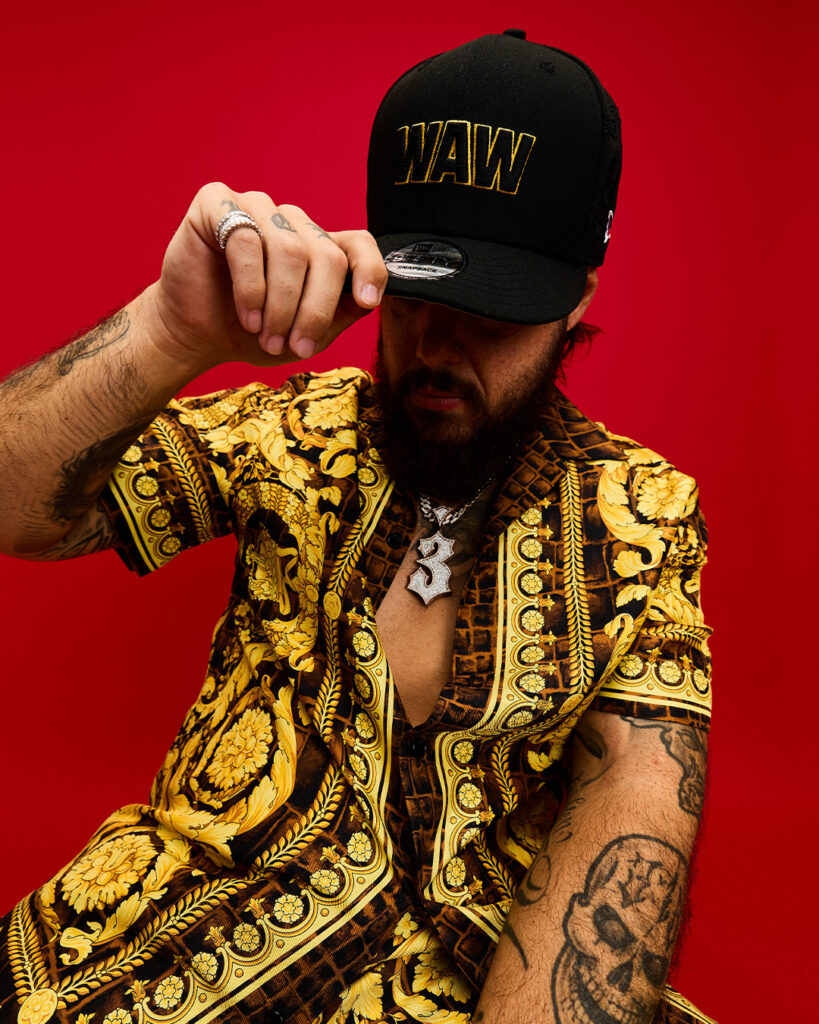
Photography: Rob Hookey
Styling: Grant Pearce
Fashion Assistant: Laura Annis-Brown
Videographer: Jasper Karolewski
This story appears in the autumn 2025 issue of Esquire Australia, on sale now. Find out where to buy the issue here.









